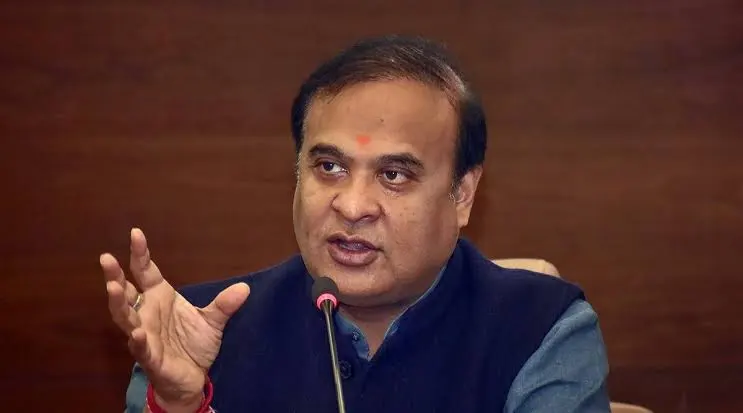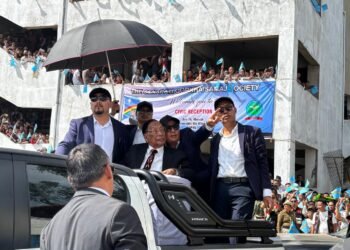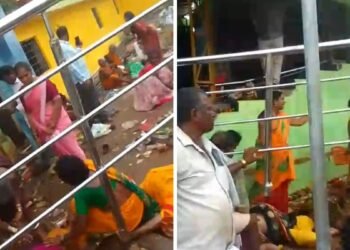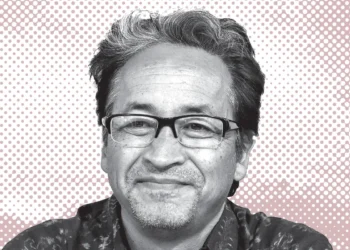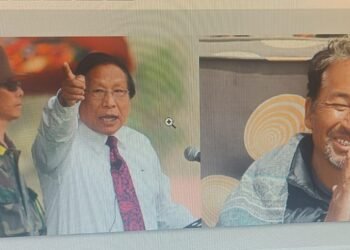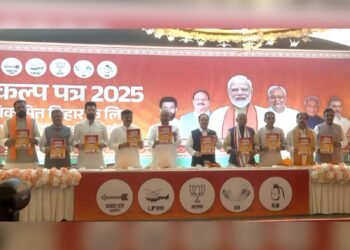Forty-two years later, Chief Minister Himanta Biswa Sarma is reviving a dark chapter of Assam’s past to sharpen his anti-illegal immigrant and “Miya Muslim” narrative.
By PC bureau
October 23, 2025 — Assam Chief Minister Himanta Biswa Sarma’s decision to table the long-suppressed Tiwari Commission Report on the 1983 Nellie Massacre in the upcoming Assembly session has stirred intense political debate. More than four decades after one of the darkest episodes in Assam’s modern history, the move appears less about reconciliation and more about recalibrating the political narrative around illegal immigration and identity in the state.
The Assam cabinet on Thursday gave it approval to table the report in the next session of the state assembly.
The Tiwari Commission, headed by Justice Tribhubhan Prasad Tiwari, was established in 1983 to investigate the causes of the Nellie Massacre, in which over 2,000 people — mostly Bengali-origin Muslims — were brutally killed on February 18, 1983, during the height of the Assam Agitation.
Although the Commission reportedly submitted its findings in 1984, successive governments kept the report buried, citing its “sensitive” nature.
Now, 42 years later, Sarma’s Cabinet has cleared it for tabling, calling it a “historic step” towards transparency. But the timing — and political context — suggest a calculated move aimed at energizing the BJP’s core constituency.
Reviving Old Wounds for New Politics
The tabling of the report coincides with a renewed push by Sarma to foreground his government’s campaign against illegal immigrants — a phrase that, in Assam’s political lexicon, often overlaps with Muslim identity.
In recent months, Sarma has sharpened his rhetoric, repeatedly using the term “Miya Muslims” — a phrase that has become a political shorthand for Bengali-origin Muslims — to portray them as outsiders threatening Assam’s demographic and cultural fabric.
The Chief Minister has also announced plans to introduce legislation on “love jihad” and polygamy in the next Assembly session — moves widely interpreted as attempts to polarize the electorate along communal lines ahead of the 2026 Assembly elections.
Seen in this light, the decision to “declassify” the Tiwari Commission Report is more than a gesture of historical reckoning. It is a potent political tool, designed to reopen old scars and reinforce the BJP’s narrative of protecting indigenous Assamese identity against perceived demographic invasion.
The 1983 Bloodbath
The massacre unfolded during the contentious 1983 state elections, held amid widespread protests by the All Assam Students’ Union (AASU) and the All Assam Gana Sangram Parishad (AAGSP).
Despite warnings of violence, the Indira Gandhi government went ahead with the polls, which the Assamese agitators saw as an attempt to legitimize “illegal” voters.
On that February morning, armed mobs — largely from the Lalung (Tiwa) and other local communities — attacked Muslim villages in the Nellie area of Nagaon district. In just a few hours, entire settlements were wiped out.
Officially, 1,819 were killed, though independent estimates put the toll at over 3,000, mostly women and children.
Despite the horror, no justice followed. Nearly 688 criminal cases were filed but later withdrawn after the 1985 Assam Accord. No one was convicted. The state moved on — the victims did not.
In 1985 the Tiwari Commission submitted its findings to the then government on the 1983 Nellie Massacre.
Today the Assam Cabinet has decided to place this report on the floor of the Assam Assembly, so its facts can be made available to the public. pic.twitter.com/MW3rbttV8a
— Himanta Biswa Sarma (@himantabiswa) October 23, 2025
History as a Political Weapon
For decades, the Nellie Massacre has symbolized both the tragedy of communal violence and the silence of the state. By choosing this moment to table the report, Sarma appears to be rewriting that silence to serve a new political purpose.
While the Chief Minister frames the move as a step towards transparency, critics see it as an act of political opportunism — an attempt to stoke latent insecurities about migration and identity just as Assam gears up for another crucial election cycle.
READ: Assam: Over Two Lakh March in Dhekiajuli, Demand ST Status for Tea Tribes and Adivasis
The BJP’s larger narrative — built around the twin pillars of Hindutva and anti-immigrant nationalism — finds fertile ground in such historical wounds. In this sense, the Nellie report’s unveiling is not merely administrative; it is ideological.
The Shadow of 1983 on 2025
Forty-two years later, the specter of Nellie continues to hover over Assam’s politics of identity. The survivors of that massacre still await justice and acknowledgment. Yet the revival of their trauma may serve less to heal and more to divide.
As Assam braces for a politically charged Assembly session, the Tiwari Commission Report may do what it was once feared to — reopen deep fissures in a state still struggling to reconcile its history of migration, identity, and belonging.


